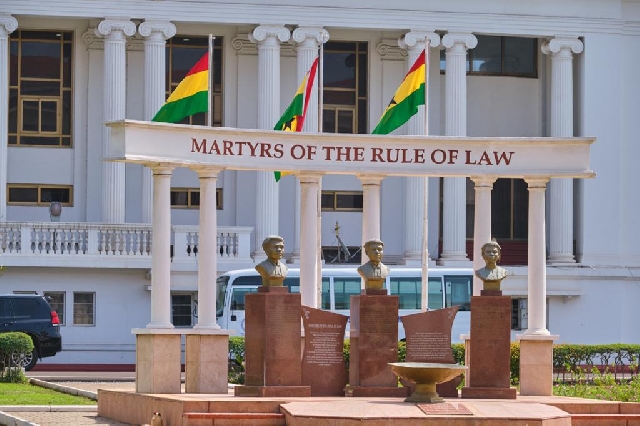Governance expert Professor Baffour Agyeman-Duah has urged Ghana to adopt Kenya’s model for appointing Chief Justices, arguing that the current system which grants the president significant influence fuels perceptions of executive interference and erodes public trust in judicial independence.
Speaking on TV3’s KeyPoints on May 3, Agyeman-Duah emphasized the need for structural reforms as part of Ghana’s ongoing constitutional review.
“The executive’s visible role in judicial appointments creates concerns about impartiality,” he said. “We must redesign the framework to insulate the three arms of government from one another.” He pointed to Kenya’s independent Judicial Council, which advertises vacancies, evaluates candidates, and selects appointees subject to parliamentary approval, as a viable alternative. “Merit-based appointments through an independent body would enhance transparency and public confidence,” he added.
Agyeman-Duah, a former United Nations advisor, acknowledged that President John Mahama’s recent move to initiate the Chief Justice’s suspension aligns with constitutional protocols. “From my perspective, the president is fulfilling his duty. I find no fault in his actions,” he stated. While reiterating his lack of legal expertise, he maintained that the process adheres to procedural norms but stressed that systemic flaws persist.
The remarks follow heated debate over President Mahama’s petition to remove Chief Justice Gertrude Torkornoo, a move critics claim tests Ghana’s democratic resilience. Agyeman-Duah framed the moment as a critical stress test for institutions. “This challenges us to prove our democratic maturity,” he said.
Ghana’s constitutional review, led by Professor H. Kwesi Prempeh, now faces mounting pressure to address long-standing imbalances. Agyeman-Duah described the initiative as a “historic opportunity” to redefine executive-judiciary relations, particularly under Article 146, which outlines removal procedures but leaves room for political interpretation.
Kenya’s reforms, enacted after a 2010 constitutional overhaul, have strengthened judicial autonomy by minimizing executive discretion. Ghana’s push for similar measures coincides with public skepticism over delayed court rulings and allegations of corruption within the judiciary. Analysts note that constitutional clarity could mitigate these issues, fostering a system where laws constrain power rather than rely on leaders’ self-restraint.
As the review progresses, stakeholders await proposals that prioritize institutional safeguards over partisan convenience, recognizing that judicial independence remains pivotal to sustaining democratic legitimacy.
Send your news stories to newsghana101@gmail.com
Follow News Ghana on Google News


















